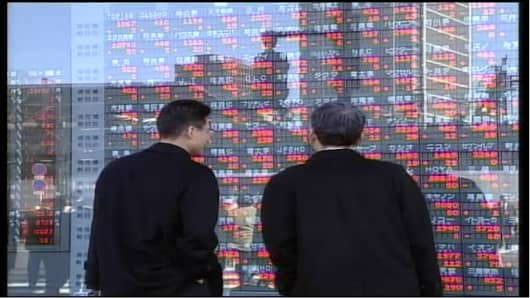Japan's Nikkei 225 Average rode a wave of bargain-hunting and short-covering to close up 0.49 percent, recovering from an 18-month low with help from a report that the U.S. government is considering new economic steps. The Wall Street Journal said the administration of U.S.
President George W. Bush is considering tax rebates of about $500 for households and tax breaks for businesses to help the economy avoid a recession.
South Korea's KOSPI ended up 1 percent after earlier hitting six-week lows, boosted by chip makers such as Hynix Semiconductor after the Hynix CEO forecast a near-term recovery in the embattled computer memory chip market. Samsung Electronics also finished stronger.
Australian shares finished 0.7 percent lower, falling for a third day in a row, as fresh signs the U.S. economy may be headed for recession sparked worries about domestic consumer spending. But stocks finished off their lows as the world's biggest miner BHP Billiton turned positive and gold miners surged on fresh record highs in the gold price. Australian shares have now retreated 10.8 percent from a record peak hit on Nov. 1.
Hong Kong stocks erased earlier losses to close 1.9 percent higher, as resource stocks shot up on the back of record gold prices, while investors bought property shares on expectations of a U.S. rate cut this month. Mainland infrastructure stocks also pulled in buyers, who saw the sector as a safe haven in the event of a U.S. recession. Still, those recession fears drove bellwether HSBC Holdings to a fresh two-year low and PC maker Lenovo Group skidded in heavy trade following a broker downgrade.
Most Chinese stocks rose led by continued gains in banking stocks and metals-related shares after a strong debut by gold futures on the Shanghai Futures Exchange. But airline stocks slumped, after shareholders' rejection of the proposed SIA in China Eastern damaged hopes for restructuring of the industry.
China Eastern Airlines's shareholders voted against selling a 24 percent staketo Singapore Airlines (SIA) and Temasek Holdings for $920 million. SIA investors shrugged off the bad news. This now paves the way for Air China to make a play for China's third-largest carrier.


